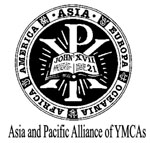Reflection on Regional Youth Conference by the General Secretary of APAY
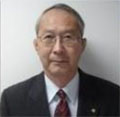 The Regional Youth Conference was held in Singa-pore with over 160 young people from15 movements. Here I would like to share my thoughts and impres-sions. I was very impressed with the level of commit-ment and the capacity of the volunteers (Uni Y mem-bers). The event itself showed the youth empower-ment and also it further empowered the youth them-selves by conducting such a big conference. The Regional Youth Conference was held in Singa-pore with over 160 young people from15 movements. Here I would like to share my thoughts and impres-sions. I was very impressed with the level of commit-ment and the capacity of the volunteers (Uni Y mem-bers). The event itself showed the youth empower-ment and also it further empowered the youth them-selves by conducting such a big conference.
Every morning devotions were held for an hour. The devotion was very well prepared with messages un-der the theme relevant to young people. I share it in this e-news separately.
The Singapore Y has made strategies of promoting the youth initiatives. The YMCA has three depart-ments for youth development; Volunteer Promotion, Overseas Program Promotion and Social Enterprise Promotion. In each department, the YMCA helps young people create new initiatives. The YMCA, es-pecially the Board Members raises fund for youth initiated activities.
After attending the Youth Conference, I thought the followings;
- It would be essential for YMCA to involve YMCA staff and some fund raising activities for promoting more youth groups and their initiatives.
- Youth Empowerment should be focused in the lo-cal YMCA level first. The local YMCA is the basis for youth activities. Therefore, local YMCAs need to form a group (Youth Committee) to discuss how they can empower young people through YMCA.
- APAY selected Youth Reps (two from each move-ment and total of 45 and World Alliance calls them as “Change agents”). Change agents are planned as a global leadership development for YMCA to pro-vide effective and strong programs for youth devel-opment. Change agents (Youth Reps) will be ex-pected to initiate and promote various youth activi-ties in local/ national movements.
KOHEI YAMADA
Devotion Messages “Step Up” Brief
During the Youth Conference in Singapore, morning devotions were held every day. The messages were relevant to the YMCA volunteers and staff. I share them briefly.
1st day: “Know Who You Are: Your Identity In Christ” by Rev. Edmond Fong
Who are influencing you most? When you were a child, your parents were influencing what to do and not to do. When you were in your teens, your friends influenced your opinions and ways to do. Then as an adult, who is influencing you and your life?
“Our heart is restless till we find the rest.”
2nd day: “Know How You Should Be: Christ-likeness” By Rev. Edmond Fong
What are the Christ-like behaviors? Mathew Chapter 5 (verses 3-12) shows; “Poor in Spirit” are those who have to rely on God’s judgments. “People who mourn” are those who realize own sins, accept unjust societies… “The meek” understand and listen to the others. “Righteousness” is moral and spiritual in rela-tionship with the others. “The merciful” are those who provide mercy and grace to the others. It continues as “Pure in heart”, “Peace makers”… Christ Centered life is from thinking how Christ thought and behaved.
3rd day: “Know The Difference You Can Make” by Rev. Edmond Fong
“Our doing is from our being” like Christ in His life and behaviors. As a Christian, can you become “the salt of the earth” and “the light of the world”? Salt in Christ time was used as preserver of foods. Being like salt is to keep something works for good. Our systems in society such as marriage, family and community are losing original functions. Do we need to preserve those? Being like the light is to shine in dark and to bring justice to society. To be the light and the salt, we need to focus on Christian life and become accustom--ed to be like. For that, we need to keep good fellow-ships with people who you see the light of the world and the salt of the earth.
4th day: “Making A Difference In Our World” by Rev Raymond Sim
In order to make a difference in the world, we may read the example of the 1 King chapter 17 (verses 7-16). 1) Opportunity: God selected the widow. 2) Open-ness: The widow accepted openly the God’s order. 3) Obedience: The widow obeyed the God’s order with-out a question. 4) Overflow: Then the widow was blessed so much.
When we are given an opportunity from God, we openly accept and obey to God’s will, then we will receive overflow of blessings from God.
KOHEI YAMADA
Movie with a Message: Changing Our Consciousness Can Change the World
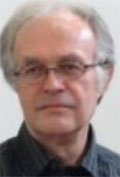 Facing a life-threatening health problem, film director Tom Shadyac, known for producing com-edies, decided to make a different film—the documentary “I Am” that tries to answer two basic questions: what’s wrong with the world, and what can we do about it? In his search for answers, he interviewed a variety of authors, scientists, reli-gious leaders and academics. Facing a life-threatening health problem, film director Tom Shadyac, known for producing com-edies, decided to make a different film—the documentary “I Am” that tries to answer two basic questions: what’s wrong with the world, and what can we do about it? In his search for answers, he interviewed a variety of authors, scientists, reli-gious leaders and academics.
Living in California, the United States was a natural location for most of his exploration, and he discerned through his interviews some underlying characteristics of American society. First, the primacy of competition permeates throughout many aspects of American life, so much so that people often feel the need to separate themselves from others at the expense of others. There is also the prevalence and encouragement everywhere to consume, a way of life that is based on the internal-ized belief that wealth equals happiness, that material-ism is the pathway to contentment. All of these under-lying attributes of American society, according to the film, lead to a people who live lives that are separated and isolated from one another, who face loneliness,who have lost their sense of community. This depic-tion of life in America has relevance for people in Asia and elsewhere around the world because this lifestyle and these attitudes and values are perhaps America’s most significant export to the rest of the world.
Another finding of the film is the unconscious convic-tion that human beings are separate from nature and, one could add, are even superior to other forms of life.
In trying to ascertain what is the nature of human be-ings, much discussion in the film focuses on the view of Charles Darwin that the fittest survive. What is lost of Darwin’s ideas today, the film notes, is his view that sympathy is the strongest instinct of human na-ture. The film concludes that cooperation is a trait of human nature that is as great, if not greater, than com-petition, and thus, to be human is to be egalitarian and democratic, to be the keeper of our neighbor, to re-spect one another and live in community. “We are,” says Desmond Tutu in the film, “because we belong.”
From the realm of science, the film provides many explanations and experiments of how all of life is connected through a vast and deep field of energy. The separateness of life, the film proclaims, is an illu-sion.
With this understanding of life as the answer to the film’s first question—what’s wrong with the world?—the film then moves to respond to the second ques-tion it raises of how to change it.
A number of people that Shadyac interviews come to the same conclusion: we need to change our con-sciousness. If people begin to base their words and actions, not on what they can get out of doing some-thing, but on how they can bring out the good in other people, then this different consciousness can alter people’s relationships with each other.
As for historical social movements for change, the academic Howard Zinn notes in the documentary that everyday small acts over a period of time and with an expanding number of people have created strong movements that have transformed social struc-tures, such as the U.S. civil rights movement and the movement to end apartheid in South Africa. Tutu adds to this observation by saying that “changehappens because you are concerned.”
Change can also occur because power is not always in the hands of the powerful. The film explains that Mar-tin Luther King Jr. told his African-American follow-ers that people who oppress blacks are damaged hu-man beings and that they have the power to set their oppressors free from their damaged souls, that follow-ing the path of love allows the oppressor to become fully human again.
Another important insight in the film is provided by the Dalai Lama. When asked what is the most im-portant meditation, he replies that critical thinking followed by action. Know your world, he says, know what is the plot and then see how you can use your talents to make a better world.
“God says,” remarks Tutu, “I don’t have anybody else but you!”
Shadyac concludes his film by posing one last ques-tion. When asked in the future what is right with the world, he replies that hopefully people will be able to simply respond: I am!
BRUCE VAN VOORHIS
Movement Updates
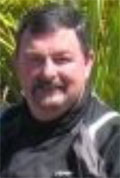
Farewell to Ric Odom,
National CEO,
YMCA of New Zealand
We bid farewell to Mr. Ric Odom, National CEO of the YMCA of New Zealand who has finished his tenure with the YMCA of New Zealand at the end of June 2012. He has been with the YMCA of New Zealand for the last 9 years as its CEO. He con-siders himself privileged to have served the YMCA and to be a part of this wonderful movement. He ex-pressed his gratitude to all his friends and colleagues for their support and cooperation extended to him, dur-ing his tenure of service. We thank him for his out-standing leadership, support and friendship and wish him all the best in his future endeavors.
APAY Green Ambassadors
Preservation of the nature & envi-ronment has become the biggest challenge for us in the post-modern era. In the name of development we have plundered the earth with the dawn of industrialization, but the degree of destruc-tion of our natural resources has exceeded all rec-ords since the last century. Carbon emission has reached new heights. Global warming has resulted in climate change which has put negative impacts in human society. Concerted efforts of all quarters are required to reverse the situation in order to save the earth from the threat of imminent danger.
The APAY had been always a proponent to bring awareness amongst the people for the conservation of the nature. One of the flagship program of APAY is the Green Ambassadors. The APAY embarked in this program to educate people to bring about behav-ioral changes in order to reduce carbon footprints and also advocate for eco-justice, with emphasis in the YMCAs also. The APAY has initiated a four year process of Recruiting, Training and Accompa-nying YMCA Green Ambassadors from various YMCAs in our region of Asia & Pacific. These Green Ambassadors take initiatives for Green Pro-grams in their respective YMCAs, to reduce the car-bon footprints of their YMCAs and eventually lead the YMCA to a carbon ‘zero’ organization.
The first Green Ambassadors Training took place during 21-25 May 2012 in Chiangmai, Thailand. About twenty enthusiastic participants, mostly youth participated at the Training Program. As a part of the curriculum, the participants were made acquaint-ed with scientific consensus about climate change, greenhouse gases, global warming, impact of the climate change and also the social economic, cultur-al and political dimensions of environmental issues. They were exposed to various endeavors in their field trip where efforts were being made to reduce carbon footprints through various energy saving de-vices and utilizing renewable energy sources and like solar energy, biogas plant, etc. The participants committed themselves to work for carbon footprint reduction in their own YMCAs. Inspired by the suc-cess of the 1st Green Ambassadors Training, APAY now do plan to hold a 2nd Green Am-bassadors Training during the month of May 2013 in Hong Kong.
The Goal of the Training is to transform the YMCAs of Asia and Pacific Region to be more sensitive to-wards the ecology, responsive towards preservation of the environment, reduce respective carbon footprints & work towards climate justice.
Now the APAY Green Ambassadors in various YMCA movements have engaged themselves in vari-ous green activities in their respective YMCAs. This has a positive impact for our environment, though it might seem insignificant. We hope that the YMCAs shall be engaging themselves more and more in car-bon reduction and offsetting activities, leading our YMCAs to zero carbon organizations.
DUNCAN CHOWDHURY
 It is heartening to witness 160 dele-gates from 15 countries to gather together for this YMCA Regional Youth Conference hosted in Singa-pore this year. It is heartening to witness 160 dele-gates from 15 countries to gather together for this YMCA Regional Youth Conference hosted in Singa-pore this year.
I’m really thankful to YMCA of Singapore and APAY for giving us (the organizing committee) this op-portunity to bring like-minded youths in one place and immersed in the theme of educate, encourage and engage.
I have never dreamt of being a chairperson for a con-ference this large of a scale. It isn’t by my hardwork but through God’s grace and YMCA of Singapore’s support, this conference is a success. Initially, I was worried that youth will not be impacted by our pro-grams; however, I was no longer skeptical after see-ing youth from different countries mingle with one another. This is an evidence that more collaboration can be forged between movements so that we can all grow stronger together and be God’s arms to be a ser-vice to His people.
LIM ANGELINA
YMCA of Singapore
Chairperson of YMCA Regional Youth Conference 2012
Looking forward YPLD
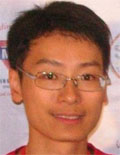 After YMCA Regional Youth Con-ference in Singapore, I was physi-cally exhausted but I am mentally fulfilled. I am happy to be part of the wonderful event, which is the start of empowering youth as agents of change. Hope our young leaders’ passion and friendship will continue and our collaborative idea can be incubated in YMCAs. YPLD is a platform for everyone. YPLD is also a good training opportunity for me. After YMCA Regional Youth Con-ference in Singapore, I was physi-cally exhausted but I am mentally fulfilled. I am happy to be part of the wonderful event, which is the start of empowering youth as agents of change. Hope our young leaders’ passion and friendship will continue and our collaborative idea can be incubated in YMCAs. YPLD is a platform for everyone. YPLD is also a good training opportunity for me.
ALVIN KAN
YPLD Committee Chairperson
Youth Participation and Leadership Development “Through My Youthful Eyes”
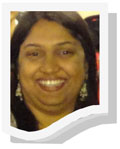 Namasthey ! Greetings from India, a multi-lingual, multi-religious coun-try with rich cultural heritage and whose motto is ‘Unity in Diversi-ty’. Our Indian YMCA has always taught us and encouraged us to have a positive vision. Through my Youthful Eyes, I always aspired to become a good leader and I felt YMCA was the right place where we can bring out our talents. We can also get involved in a team and strive to maintain a healthy group dynam-ics. Here we can learn to accomplish and help our team to be focussed in team activities, it also enables us in facilitating solving problems. Leadership is not only about leading someone but it is about a concert-ed team effort where every-body works together in harmony. YPLD motivates us there by bringing out the leadership qualities which are of paramount im-portance to each individual and also to the organiza-tion. Over the years YMCA has been continually teaching me to understand the various problems in the society and it provides a challenging opportunity to motivate others to help them join the family of YMCA. YMCA is a platform to serve others. Namasthey ! Greetings from India, a multi-lingual, multi-religious coun-try with rich cultural heritage and whose motto is ‘Unity in Diversi-ty’. Our Indian YMCA has always taught us and encouraged us to have a positive vision. Through my Youthful Eyes, I always aspired to become a good leader and I felt YMCA was the right place where we can bring out our talents. We can also get involved in a team and strive to maintain a healthy group dynam-ics. Here we can learn to accomplish and help our team to be focussed in team activities, it also enables us in facilitating solving problems. Leadership is not only about leading someone but it is about a concert-ed team effort where every-body works together in harmony. YPLD motivates us there by bringing out the leadership qualities which are of paramount im-portance to each individual and also to the organiza-tion. Over the years YMCA has been continually teaching me to understand the various problems in the society and it provides a challenging opportunity to motivate others to help them join the family of YMCA. YMCA is a platform to serve others.
BETSY MERLYN WILLIAMS
YPLD member, India
|
